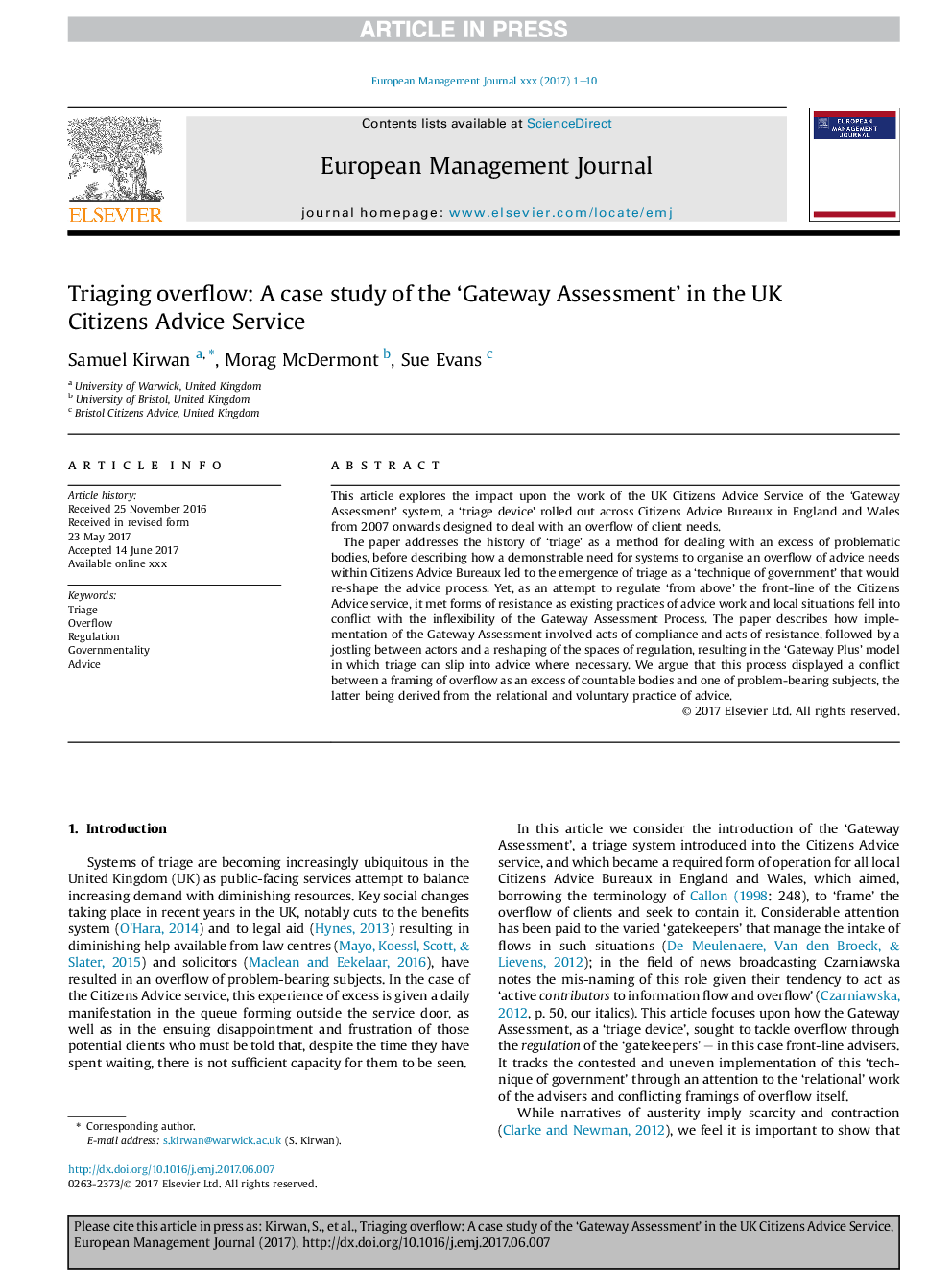| Article ID | Journal | Published Year | Pages | File Type |
|---|---|---|---|---|
| 7423614 | European Management Journal | 2017 | 10 Pages |
Abstract
The paper addresses the history of 'triage' as a method for dealing with an excess of problematic bodies, before describing how a demonstrable need for systems to organise an overflow of advice needs within Citizens Advice Bureaux led to the emergence of triage as a 'technique of government' that would re-shape the advice process. Yet, as an attempt to regulate 'from above' the front-line of the Citizens Advice service, it met forms of resistance as existing practices of advice work and local situations fell into conflict with the inflexibility of the Gateway Assessment Process. The paper describes how implementation of the Gateway Assessment involved acts of compliance and acts of resistance, followed by a jostling between actors and a reshaping of the spaces of regulation, resulting in the 'Gateway Plus' model in which triage can slip into advice where necessary. We argue that this process displayed a conflict between a framing of overflow as an excess of countable bodies and one of problem-bearing subjects, the latter being derived from the relational and voluntary practice of advice.
Related Topics
Social Sciences and Humanities
Business, Management and Accounting
Business and International Management
Authors
Samuel Kirwan, Morag McDermont, Sue Evans,
